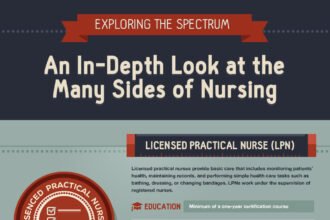Becoming a travel nurse offers healthcare professionals the chance to explore new places, gain diverse clinical experiences, and enjoy flexible work arrangements. This career path is ideal for those who thrive in dynamic environments and seek a fulfilling, mobile lifestyle.
Step 1: Obtain the Necessary Nursing Credentials
Prospective travel nurses must hold either an Associate Degree in Nursing (ADN) or a Bachelor of Science in Nursing (BSN). After completing your degree, passing the NCLEX-RN exam is required to gain RN licensure. A BSN may increase your competitiveness in the job market.
Step 2: Gain Clinical Experience
Most travel nursing positions require a minimum of one to two years of clinical experience in a specific specialty. Gaining this experience is crucial, as travel nurses often work in fast-paced environments with minimal orientation time. Emergency, intensive, and long-term care travel nurse jobs typically offer competitive pay for this.
Step 3: Obtain Certifications and Licenses for Mobility
The Nurse Licensure Compact (NLC) allows RNs to work in multiple states with one license, simplifying the process for those planning to work in NLC member states. Additional certifications in Advanced Cardiac Life Support (ACLS) or Pediatric Advanced Life Support (PALS) may also be required depending on your specialty.
Step 4: Partner with a Reputable Travel Nursing Agency
Partnering with a reputable agency streamlines the job search, handles logistics like housing, and ensures a smoother transition into each assignment. Agencies often provide support with contract negotiation and can guide you to roles that fit your skills and preferences.
Pursuing a career as a travel nurse is a pathway to professional growth, variety, and even adventure. With the right credentials and support, you can build a rewarding, flexible career as a travel nurse. To learn more about becoming a travel nurse, check out the accompanying resource below.










